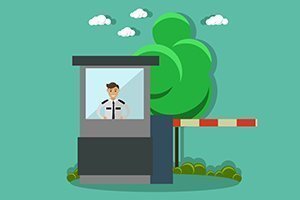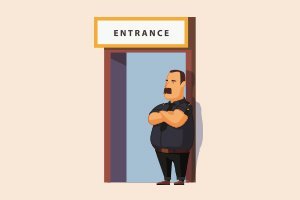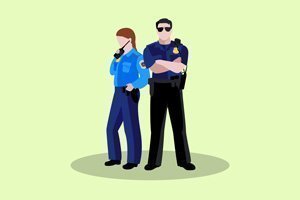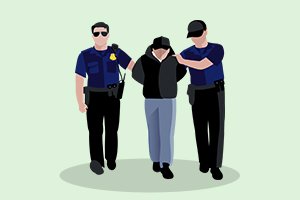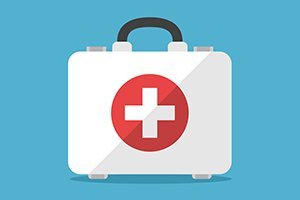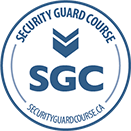Security Professionals working in the province of British Columbia are required to complete mandatory training prior to being eligible for provincial licensing. You must be 19 years of age before you can apply for your BC Security Guard training.
B.C. Security Programs Website can be found here for more information.
Mandatory BST training is 40 hours in length, and focuses on the following content:
- Professionalism & Ethics
- Legal Studies
- Report Writing
- Personal Safety
Approved Security Training Schools are required to follow the training standards for the security industry as outlined in the Security Services Act. Approved Security Training Schools are listed further down this page.
BC Security Guard Training Course Outline
Introduction to the Course
- Express expectations of the course.
- State the course goal.
- List the course objectives.
Introduction to Private Security
- Define “professional” and explain the standards of professional conduct for security professionals (SPs).
- Define “ethics” and explain its importance in the security profession.
- Give examples of ethical and unethical behaviour on the part of SPs.
- Define “customer service” and explain its importance in the security profession.
- Describe the difference between private security and the police.
- List the types of jobs that SPs could do.
- List the basic duties of SPs.
- List the types of incidents to which SPs might have to respond.
- Explain the basic steps in responding to incidents.
- Explain the guidelines for incident scene protection.
- Describe the role of emergency services and regulatory agencies.
- Explain the authority of emergency services and regulatory agency personnel on private property.
Legal Issues
- Define “law” and state the function of law.
- List the federal and provincial laws that provide a legal framework for SP duties and powers.
- Explain the purpose of the Canadian Charter of Rights and Freedoms.
- Explain the SP’s responsibilities and limitations under the Charter.
- Explain the impact of human rights legislation on the SP’s performance of his or her duties.
- Define key terms used in reference to criminal offences.
- Identify the essential elements of common offences.
- Explain the provisions of the Security Services Act and Security Services
- Regulation that have a direct impact on SPs.
- Identify other legislation that have a direct impact on SPs.
- Describe the SP’s powers and limitations under the law.
Documentation
- Explain the benefits of an SP’s notebook.
- Explain the guidelines for effective note-taking.
- State the rules for maintaining a notebook.
- List the parties who may access an SP’s notebook.
- Explain how an SP’s notebook may be used in court.
- Write effective notes about an incident.
- Explain the purpose of a report.
- List the instances when a report must be written.
- Describe the characteristics of an effective report.
- Describe the report-writing process.
- Write an effective report.
Personal Safety
- Define “safety.”
- Describe the elements of a safe interview stance.
- Describe the various relative positions that could be used in an encounter.
- Explain the importance of continuous assessment.
- Define “tactical communication.”
- State the goal and benefits of tactical communication.
- Explain how tactical communication fits in the National Use of Force Model.
- Apply three major tactical communication strategies.
- Describe the desired outcome of tactical communication.
- List personal safety strategies.
On completion of the online BC security guard training, students must pass a final written exam with a score of 60%. This is not available online and must be written in person. Regularly scheduled exams are held in the Lower Mainland at the JIBC New Westminster Campus. Out of town students will have an exam set up in a location near them but may have to wait up to three weeks. Your online administrator will contact you by email or phone to confirm exam details.
Approved Security Training Schools
(Updated 28 August 2019)
Security Training Programs administers mandatory security training in British Columbia on behalf of the Ministry of Justice and the Security Services Act.
A complete current list of approved training schools can be found here.
Note:
As of April 12, 2016 the current security industry licenses and permits will be upgraded with new security enhanced licenses and permits that meet the current government quality standards. All current licenses and permits in the previous style will continue to be valid until their expiration date. The example below shows a comparison of the licenses issued prior to April 12, 2016 and the new security worker licenses.
LICENSED SECURITY PROFESSIONS
In British Columbia, a licence is required to practice these security professions:
A Security Guard (and Security Guard under Supervision):
- Provides or supervises a guard patrol or watch of property
- Provides or supervises a guard of an individual
- Performs services to prevent the loss of property
- Provides door security at an establishment licensed under the Liquor Control and Licensing Act
Security guards can also respond to and monitor alarms installed on the property of another person.
A Security Guard Under Supervision does the work of a security guard only under the direct supervision of a fully licensed security guard. This type of licence is only valid for 90 days and can only be held once.
A Security Alarm Installer (and a Security Alarm Installer under Supervision) is a person who sells, supplies, provides advice on, or offers to install a security alarm and maintains or repairs security alarms.
A Security Alarm Installer can also code or recode an electronic locking device, make, sell or otherwise provide a lock operating device for an electronic locking device.
This licensee can also sell, supply, provide advice on, service or install any closed circuit television equipment device or system.
This category also allows for monitoring and responding to alarms installed on another person’s property.
A Security Alarm Installer Under Supervision must work under the supervision of a fully licensed Security Alarm Installer.
A Security Alarm Monitor monitors security alarms installed on the property of another person.
A Security Alarm Responder responds to and monitors security alarms installed on the property of another person.
A Security Alarm Salesperson sells or gives advice on security alarms.
A Security Consultant advises on protecting property from vandalism, intrusion, trespass or theft; or detects electromagnetic, acoustical or other devices by which private communications or records may be intercepted, transmitted or examined.
An Armoured Car Guard transports property, valuables and money in approved armoured vehicles. Armoured car guards may possess firearms in connection with their employment upon providing proof to the Registrar that they have a current, valid Authorization to Carry Restricted Firearms and Prohibited Handguns certificate (ATC).
A Locksmith (and Locksmith under Supervision):
- Makes, services, repairs, codes, records, rekeys or repins locking devices (except a person who codes or recodes a device that person owns)
- Cuts, makes, sells or otherwise provides restricted keys
- Cuts, makes, sells or otherwise provides keys from a numerical or alphabetical code or a combination of numerical and alphabetical codes
- Sells, services or repairs safes, vaults or other similar secure storage methods
- Sells, supplies and installs an electronic locking device
A Locksmith Under Supervision performs the work of a locksmith only while under the supervision of a fully licensed locksmith.
A Private Investigator (and Private Investigator under Supervision and in-house Private Investigator) is a person paid to seek or obtain information about:
- Crimes, offences, contraventions or misconduct, or allegations of crimes, offences contraventions or misconduct
- The activities, character or repute of a person or organization
- The whereabouts of a person
- The location, disposition or recovery of lost, stolen or missing property
- The cause of or the responsibility of any fire, accident or incident in which damage to property or injury to any person has occurred
A Private Investigator under Supervision performs the work of a private investigator only under the supervision of a fully licensed private investigator.
A Closed Circuit Television Installer sells, supplies, provides advice on, services or installs any closed circuit television equipment, device or system.
An Electronic Locking Device (Access Control) Installer:
- Sells, supplies, advises on, serves or installs an electronic locking device
- Codes or recodes an electronic locking device
- Makes, sells or provides a lock-operating device for an electronic locking device
Body Armour Sales and Body Armour Vendor
Body armour may only be sold by licensed security businesses (with licence type body armour vendor listed on their licence) and by licensed security workers (who have licence type body armour sales listed on their licence). Licensed security businesses and licensed security workers do not have to apply for a permit to possess body armour for the purposes of sales.
Licence Authorizations
Dogs
Security businesses and security guards using dogs while providing security services must have authorization to do so from the Registrar of Security Services. The dog handler and dog must complete validations through the Justice Institute of British Columbia before requesting authorization from the Registrar.
Restraints
Security guards who want to use restraints while providing security services must first earn an Advanced Security Training (AST) Certificate from the Justice Institute of British Columbia before requesting authorization from the Registrar of Security Services.

